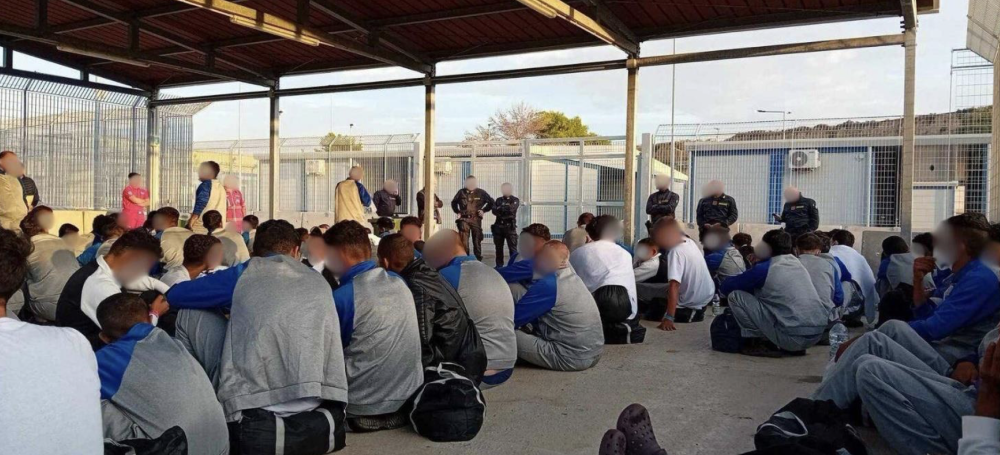‘Detention, illegalisation and the so-called CEAS reform in southern Italy - monitoring the situation of refugees in the light of the European migration pact’
In September 2024 our new project began, carried out by the organisations borderline-europe and Maldusa, managed by the Forschungsgesellschaft Flucht und Migration, and supported by the Protestant Church in Hessen and Nassau (EKHN), the Protestant Church in the Rhineland (EKIR), LeaveNoOneBehind and Pro Asyl!
In recent years, Europe has been characterised by increasing attacks on human rights in general and the massive dismantling of refugee rights in particular. One example of this is the ‘Common European Asylum System’ (CEAS), which aims to make detention centres at the EU's external borders the standardised norm. Unlawful pushbacks and pullbacks characterise and dominate the daily reality of refugee and migration movements, particularly in the eastern and central Mediterranean. Continued attempts to externalise the border regime can be seen in the EU's billion-euro deals with Turkey, Libya, Tunisia, Mauritania, Egypt and Lebanon. Sicily, the EU's southern external border and arrival point for migrants by sea, is a testing ground for the implementation of the new European asylum and migration policy. With the Albania-Italy deal, Italy is one of the first EU states to actually attempt to extraterritorialise border procedures, pre-removal detention, access to asylum, and refugee status determination (RSD).
We feel it is vital to keep monitoring this complexity, highlighting the critical role of civil society actors, as well as the critical actions and voices of people on the move.
The implementation of new border procedures in Italy after the ‘Cutro decree’. Main challenges and ongoing legal battlegrounds.
Since March 2023, several juridical changes have altered migration policies relating to arrivals in Italy by sea. In continuity with the past, governmental efforts have gone in the direction of further restricting the possibilities of seeking asylum in Italy, through an instrumental use of the safe country of origin concept, and through the introduction of new detention procedures for asylum seekers. The outcome of these new experimental procedures now depends on the possibility of implementing the protocol between Italy and Albania, as a form of extraterritorialisation of border procedures and asylum access. In this short article, we reflect on the major obstacles these policies have encountered at the jurisdictional level, thanks to the challenges raised in the Sicilian and Roman courts, as well as in the European Court of Justice.
Palermo, November 2024
See the full text here

